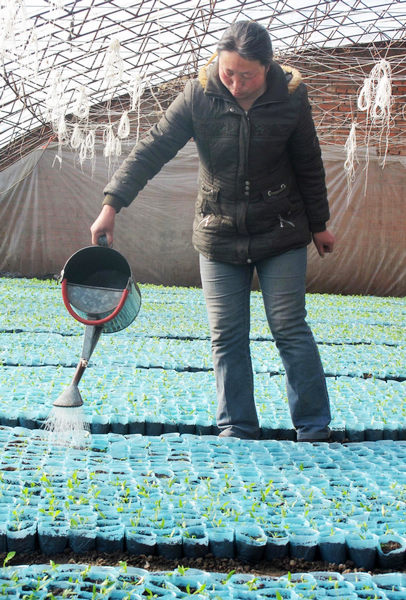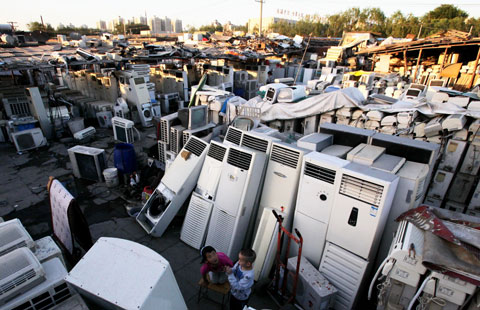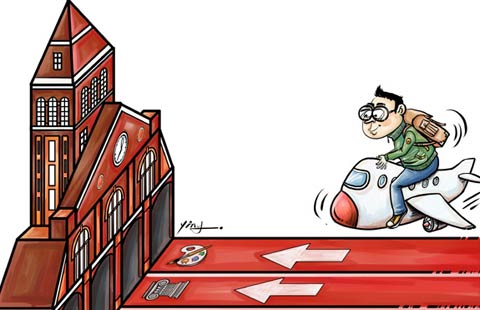Farm workforce withers as young people leave
By He Na and Han Junhong (China Daily) Updated: 2012-02-29 08:20Aging industry
Like many aging laborers, Li was reluctantly forced into retirement by ill health. He produced a box containing various medicines for arthritis, high blood pressure and diabetes.
When his daughters refused to return home, he began to fear that his land may go unused this spring and contacted Nanxing's village committee for help. That was when he got the idea to rent out the space.
 |
|
Ji Chunyan in one of the five greenhouses built on land she rented from her brother and sister in Daling, Jilin province. Her family can now earn 200,000 yuan in a year. [He Na / China Daily] |
"It's how the government in (nearby Daling) town tackled the problem of empty villages," explained village head Ma Xiaobo, who had just returned from a meeting in Daling about land transfers, which he described as a way to liberate laborers and consolidate land in the hands of experienced farmers.
He suggested Li hand over his land to a younger farmer with better technology who could increase the yield. That way, Li and his wife would receive an income of 3,000 yuan a year and the land would not go to waste.
"I saw lots of barren land on the roadside last year," said Ma, who added that out of a population of 2,200, at least 800 people had left for cities. "The amount of (arable) land is decreasing year by year in China, so to see good land abandoned is a real pity."
Yao Weibo, leader of the government in Daling, said the 15 villages under his jurisdiction have all experienced the same problem as Nanxing.
When the plowing season starts in spring, most farmers who take to the fields will be in their 50s or older. For an area that relies on the strength of its agricultural industry, the lack of interest among younger people is worrying.
"This is a nationwide issue, one that can't be solved by a low-level official like me," Yao said. However, he agreed land transfers are a good short-term solution.
"To increase farmers' incomes, we must liberate them from the land," he said. "At the moment, a young man can either earn 50 yuan ($8) a day on a construction site or 10,000 yuan a year at most by farming 1 hectare.
"People should be encouraged to go out and improve their lives," he added, "but that doesn't mean their farmland must be abandoned."
Technology has helped ease the burden; a job that once took three people to do can now be done by one. However, experts say the use of advanced machinery can be difficult on small, scattered patches of land, affecting efforts to popularize it.
"Realizing large-scale land management is a win-win deal," Yao added. "Landowners receive rent, sometimes double their previous income, and tenants can expand production and earn more."
- Seven villagers murdered in N China
- China steps up tobacco control efforts
- Five jailed for separatism in Xinjiang
- Letter asks for leniency in poisoning case
- Antibiotics in surface water pose 'indirect health risk'
- Tianjin airport opens up transit link to Beijing
- High levels of antibiotics in China's major rivers
- China to dig tunnel for Asian rail system
- Bering strait line to US possible, experts say
- China: Stop oil rig harassment







